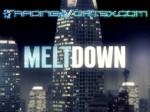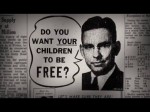Unmasking the Global Economic Order: A Critical Examination of “Four Horsemen”
In the documentary “Four Horsemen”, directed by ‘Ross Ashcroft’, the hidden forces shaping our world’s economic landscape are brought to light, inviting viewers on a journey of critical examination. This section aims to delve into the thought-provoking insights presented in the film, exploring its analysis of the global economic order and the pressing issues it uncovers. By unmasking the systemic flaws and posing challenging questions, "Four Horsemen" prompts us to reassess our societal values and consider alternative paths towards a more just and sustainable future.
Revealing the Veiled Manipulations:
"Four Horsemen" meticulously unravels the intricate web of manipulations orchestrated by a few powerful elites within the global economic system. Through interviews with esteemed thinkers, economists, and activists, the film sheds light on the mechanisms that perpetuate inequality, exploitation, and environmental degradation. It exposes how financial institutions, corporate interests, and government policies favor the privileged few at the expense of the masses, highlighting the urgent need for systemic change.
Challenging Assumptions:
At the heart of "Four Horsemen" lies a compelling challenge to prevailing economic assumptions. The documentary questions the sustainability of debt-based economies, calls into question the ethics of profit-driven models, and interrogates the consequences of unchecked capitalism. By encouraging viewers to critically examine these deeply ingrained beliefs, the film sets the stage for a broader conversation on alternative economic frameworks that prioritize human well-being and ecological balance.
Solutions and Alternatives:
While "Four Horsemen" uncovers the flaws and injustices of the global economic order, it also offers a ray of hope. The documentary presents visionary alternatives and pragmatic solutions that could lead us toward a more just and sustainable society. By highlighting real-world examples and innovative initiatives, the film inspires viewers to reimagine our economic priorities and consider the transformative potential of socially and environmentally conscious models.
Impact and Call to Action:
"Four Horsemen" has had a profound impact since its release, sparking discussions, debates, and calls for change. By provoking thoughtful reflection on the consequences of our current economic system, the documentary prompts viewers to question their own roles and responsibilities within this complex web. It serves as a powerful call to action, urging individuals and communities to advocate for systemic reforms and participate actively in shaping a fairer and more equitable world.
Conclusion:
"Four Horsemen" stands as a compelling and timely documentary that courageously unveils the hidden forces shaping our global economic order. Through its critical examination of the systemic flaws, thought-provoking insights, and visionary alternatives, the film challenges us to question the status quo and actively engage in shaping a more just and sustainable future. It is a rallying cry for collective action, reminding us that the power to effect change lies in our hands.
Video Key Points:
- People tend to tolerate suffering rather than challenge the familiar systems they are accustomed to.
- Society is at a critical juncture where it can either become complacent and redundant or play a decisive role in shaping the future.
- Banks' actions, such as using bailout money for bonuses instead of lending, were seen as reprehensible and caused outrage.
- Corporations, with little interest in the United States, now govern the country, and the speaker questions what led to this decline.
- The world is entering the Age of Consequence, marked by a rapacious financial system, escalating violence, widespread poverty, and impending environmental consequences.
- The speaker emphasizes that the film does not promote conspiracies or fear but instead challenges existing systems and proposes reform.
- Throughout history, systems have been manipulated and corrupted to serve the interests of the few, and the elites maintain power by controlling the way people think.
- Gatekeepers have historically shaped the cognitive map of society, but the internet, like Gutenberg's printing press, is changing governance, finance, and media.
- To enact meaningful change, it is necessary to understand the unspoken truths and seek context from those who challenge collective delusions.
- The persistence in pursuing the impossible can lead to the destruction of great powers.
- After World War II, the United States held a dominant position in the world with a significant GDP share and industrial output, but since then, there has been a lack of substantial action.
- The wealth gap between the rich and the poor is continuously growing due to the adoption of fiat money and fractional reserve banking systems.
- Moving away from the gold standard and adopting these systems leads to a faster accumulation of debt than the country can support.
- This results in a situation where the country becomes trapped in debt slavery.
- The United States, for example, generates approximately $5.50 worth of debt for every dollar of GDP.
- Creating more debt exacerbates the issue and does not solve existing debt problems or generate real wealth.
- Currently, 97% of the money in the world is debt.
- Capitalism and communism were in a struggle, but communism failed due to inefficiency and the inability to deliver well-being to society.
- Capitalism, too, is destined to fail because it also attempts the impossible task of perpetual growth.
- The United States, which historically operated under the assumption of expanding resources, is now facing constrained resources and is ill-prepared for the shift.
- The American dream has become distorted due to extreme forms of capitalism, influenced by economists like Milton Friedman and political leaders such as Ronald Reagan and Margaret Thatcher.
- Policies encouraged excessive debt, privatization, smaller governments (despite increased military spending), deregulation, and the absolution of regulations governing corporations.
- This has resulted in a bloated and invasive state where corporations and their leaders are largely unregulated, creating a system where the rich can make mistakes without consequences while the poor suffer the repercussions.
- Wealthy individuals claiming their riches through exploitative methods is self-serving propaganda that should be disregarded.
- Inequality being necessary for institutions like Goldman Sachs to function is illogical.
- Morality should be considered in economic calculations.
- Adam Smith did not explicitly state that pursuit of self-interest leads to the well-being of society.
- Businesses can conspire against the public interest and neglect education.
- Adam Smith's work has been manipulated and used as a political tool by financiers.
- Trickle-down economics does not hold up in reality.
- Flawed political processes dependent on lobbyists and campaign contributions contribute to the current situation.
- Restructuring political processes is necessary to give more voice to ordinary citizens and reduce the influence of interest groups.
- Both Democrats and Republicans are influenced by corporate interests.
- Terrorism and the inherent iniquity in money, banking, and political systems have significant global consequences.
- Military campaigns may have motivations beyond moral obligations.
- The effectiveness of military operations in eradicating terrorism is questionable.
- Drone attacks may contribute to increased extremism and radicalization.
- Speculation suggests deliberate destabilization of countries through attacks.
- Massive military operations displace millions when targeted operations could be more effective.
- Contractors benefit financially from military campaigns and rebuilding processes.
- Developed nations investing in infrastructure development in developing nations may have hidden consequences.
- Economic hit men are involved in creating these situations.
- The individualistic pursuit of success without incorporating the vulnerable community is a failing concept.
- Human beings seek attachment and purpose outside of themselves, adding positive value to society.
- The Hollywood film construction has influenced the way people view the financial crisis, expecting a simple resolution with good and bad characters.
- Flaws in the Western economic system cannot be rectified by targeting a few individuals; systemic changes are needed.
- The current system enables the Four Horsemen (financial system, organized violence, poverty, resource depletion) to exploit the most vulnerable.
- Societies need to reduce income inequality to improve the overall quality of life for everyone.
- Apathy is engineered through disinformation and propaganda perpetuated by real estate and financial interests.
- The neo-classical school of economics has created a cloud of ignorance, which needs to be questioned and understood.
- The current fiat money system is unsustainable, and gold offers stability and sound money outside the control of politicians.
- Excessive debt has enslaved societies, and debt cancellation can provide a fresh start.
- Taxation systems should shift from taxing production to taxing consumption, with land taxation based on natural resource value.
- Worker ownership of plants should be resurrected to promote a fairer economic system.

































 TradingVortex.com® 2019 © All Rights Reserved.
TradingVortex.com® 2019 © All Rights Reserved.